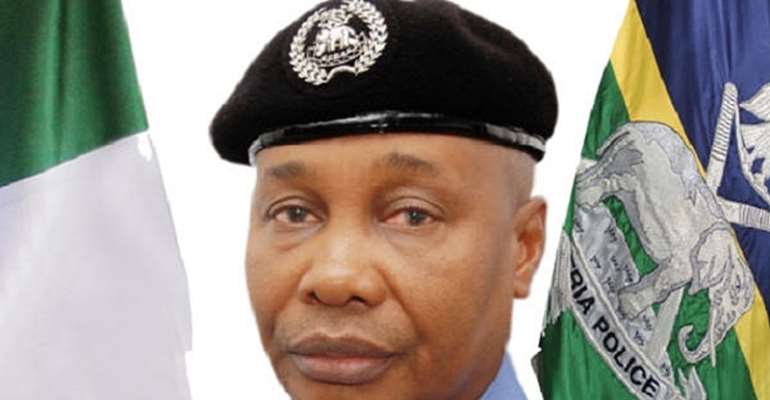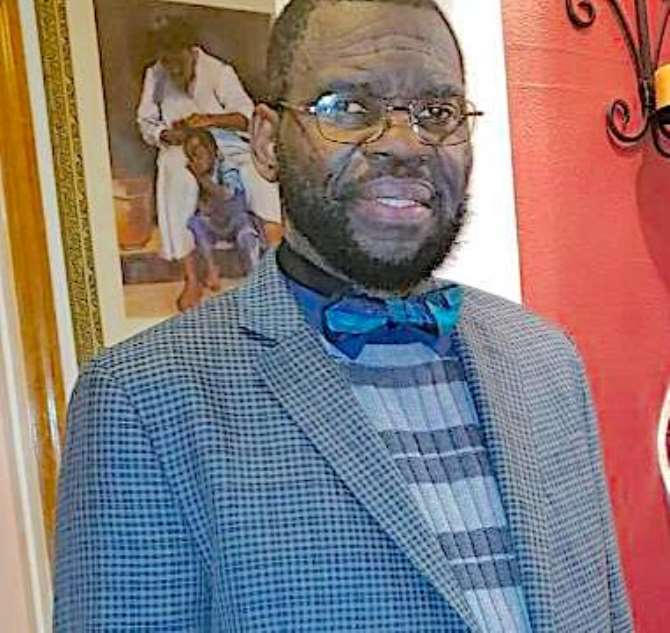State/local Policing Will Produce Triple Benefits For The Nigerian People Now

Nigeria needs to begin a State (Local) Police System in order tofully reduce or eradicate the troubles of the One-size-fits-all Policing, militaristic law enforcement approach, and single-handedly appointed IGPs. For the Nigerian government to restore public trust and confidence in the law enforcement and security forces, especially the police, erecting a local communityled Policing system across the country with independent jurisdictions will add value to our overall justice system.
Currently the established called the Nigeria Police Force (NPF) is nationally and internationally perceived as a body or institution of chronic human rights abuses, endless impunity, ungoverned ethics, incoordination, untrustworthiness, jungle justice, looting, suspicion, prejudice, intimidation, harassment, extortion, dehumanization, wrong-doings, notoriousness, cruelty, and violence. For a law enforcement body like the Nigeria Police Force to continuously and widely be perceived by the Nigerian public and international democratic societies as the most dishonest and violent institution in Nigeria, just for the mental and physical wellbeing of the society, the disbandment or complete decentralization of the NPF must occur.
Since the Nigerian people no longer have respectable feelings for the NPF, and sees it as driven by trust erosion, so what is wrong with rebuilding our out dated and one-size-fits-all NPF into Local (State) Police arrangements that reflect the patterns of neighborhoods, municipalities, and communities?
In all human matters and interactions, citizens are more likely to trust local based governments than national government. Repeatedly, the Nigerian government keep talking about ‘community policing’, and of recent the constabulary approach has been reintroduced or brought into the police affair.
Here is the plain reality, it will not work, as it is merely a feel-good term and resembles a form of public relations.
After a long history of cyclical police brutality and injustice, community policing, no matter the name it is called does little to reduce nepotism, criminality, corruption, or police violence.
Community policing creates the false idea that police can solve underlying issues through building relationships, but this sort of thinking about policing within the Nigerian context has only made our concerns worse.
Local law enforcement, organized community events in the area such as playing soccer with neighborhoods youths and ice cream freebies is not it. In fact, in a country like Nigeria, heightened presence, patrols on the streets and contacts with neighborhood will enhance more anxiety and fear on both sides due to issues of unaccountability, excessive force and safety factors.
If Nigeria genuinely wants to see the face of community police, it must be built through Local and State governments, as such structures allows community or local or neighborhoods policeofficers, better reflect the demographics of the community.
As the nation turns to State based policing, the judiciary must follow suit to better and effectively improve the justice system in independent States and Local governments.
Unlike the current structure of the NPF, an epidemic of police brutality, State and locally built police officers and leadership will have more value and local knowledge of the neighborhoods they patrol. If police officers are citizens in uniform, who come from the local regions or areas, we will likely see what I call relationship-based law enforcement practices and contacts that works to the benefit of each party and interest.
There will be for the most part a non-militaristic form of humiliation and more positive psychological relationship between the police and the communities.
The NPF remains erratic, unpredictable, and inconsistent in terms of leadership styles due to its bloated, inefficient, ineffective, colossal, and centralized system. The system of State and locally built policing and its leadership will come with reliability, coherence, timeliness, effectiveness, and stability due to the responsive and approachable nature of State/Local government compared to centralized massive government.
A system of State and locally built policing will forever and overwhelmingly eliminate ethnic and regional doubts and tensions over the systemic police leadership approach that heavily favor northern Muslims.
Specifically, the current huge controversy over the selection of Usman Baba, a Deputy Inspector-General of Police, as the new Acting Inspector-General of Police (IGP), by the President will not have happened. Unlike the Nigeria Constitution which requires the Police Council to advise on the appointment of IGP which President Buhari reportedly ignored; in a system of State and locally built policing system, the Police chief will be appointed by a State governor and/or a Local government Chairperson along with other local officials, or group of officials, and they will be selected from a pool of candidates within the State and Local police agencies or an outside police establishment.
I have often been asked in a locally based police system environment what happens then to the NPF? It shouldautomatically rebuild itself as specialized federal based policeresponsible only for Federal Capital Territory (FCT) in Abuja and placed under the Federal Ministry of Internal Affairs. And get rid of the federal Ministry of Police Affairs, it has no objective and valuable democratic role in modern police systems.
For Local or State policing to vastly become the reverse of the current body of the NPF, local universities and institutions will be used to set up academies and programs for the evaluation and training of physically fit, financially ethical, emotionally balanced, culturally sensitive, human rights minded and mentally sharp officers.
Contemporary Nigeria is a far cry away from Nigeria that came into being from the amalgamation of 1914 or the NPF that was born in 1930. As such, the voice of the Police/Prison scientist and Forensic/Clinical/Legal psychologists; the strong and bold voice of Governor Nasir El-Rufai of Kaduna State, and the quiet and somber voice of Vice President Yemi Osinbajo regarding the erection of locally based independent policing must be listened to.
Why are most Southern Governors and heads anxious for non-federal police systems but most of the Northern groups and governors are characterized by fear when state/local police systems are mentioned? Well, here is the reality, the unyielding path toward State/Local policing is here and it will happen.There it is.
Prof John Egbeazien Oshodi, an American based Police/Prison Scientist and Forensic/Clinical/Legal Psychologist. A government Consultant on matters of forensic-clinical adult/child psychological services in the USA; Chief Educator and Clinician at the Transatlantic Enrichment and Refresher Institute, an Online Lifelong Center for Personal, Professional and Career Development. The Founder of the Dr. John Egbeazien Oshodi Foundation, Center for Psychological Health and Behavioral Change in African settings especially. The Development Professor and International Liaison Consultant at the African University of Benin, and a Virtual Faculty at the ISCOM University, Benin of Republic. Author of over 35 academic publications/creations, at least 200 public opinion writeups on African issues, and various books.
Prof. Oshodi was born in Uromi, Edo State, Nigeria to parents with almost 40 years of police/corrections service. Periodically visits home for scholastic and humanitarian works. [email protected]

